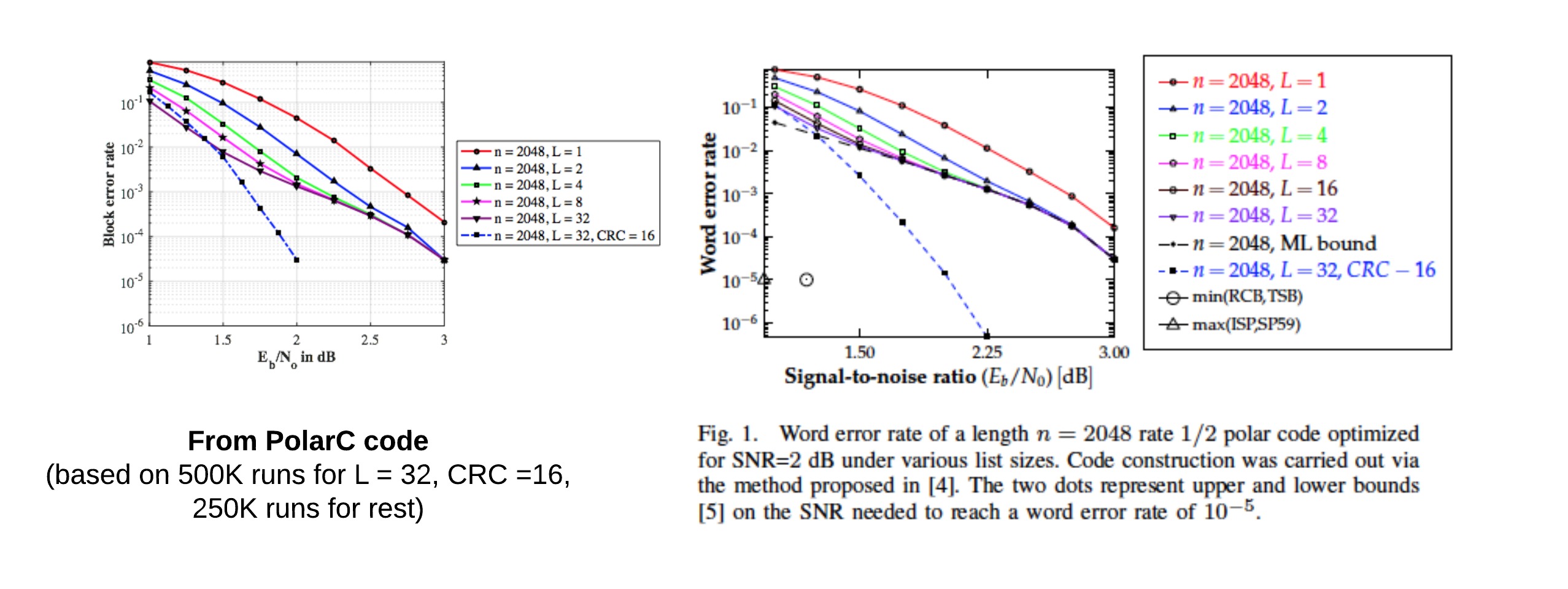List Decoding of Polar Codes
We describe a successive-cancellation \emph{list} decoder for polar codes, which is a generalization of the classic successive-cancellation decoder of Ar{\i}kan. In the proposed list decoder, up to $L$ decoding paths are considered concurrently at each decoding stage. Then, a single codeword is selected from the list as output. If the most likely codeword is selected, simulation results show that the resulting performance is very close to that of a maximum-likelihood decoder, even for moderate values of $L$. Alternatively, if a "genie" is allowed to pick the codeword from the list, the results are comparable to the current state of the art LDPC codes. Luckily, implementing such a helpful genie is easy. Our list decoder doubles the number of decoding paths at each decoding step, and then uses a pruning procedure to discard all but the $L$ "best" paths. %In order to implement this algorithm, we introduce a natural pruning criterion that can be easily evaluated. Nevertheless, a straightforward implementation still requires $\Omega(L \cdot n^2)$ time, which is in stark contrast with the $O(n \log n)$ complexity of the original successive-cancellation decoder. We utilize the structure of polar codes to overcome this problem. Specifically, we devise an efficient, numerically stable, implementation taking only $O(L \cdot n \log n)$ time and $O(L \cdot n)$ space.
PDF Abstract